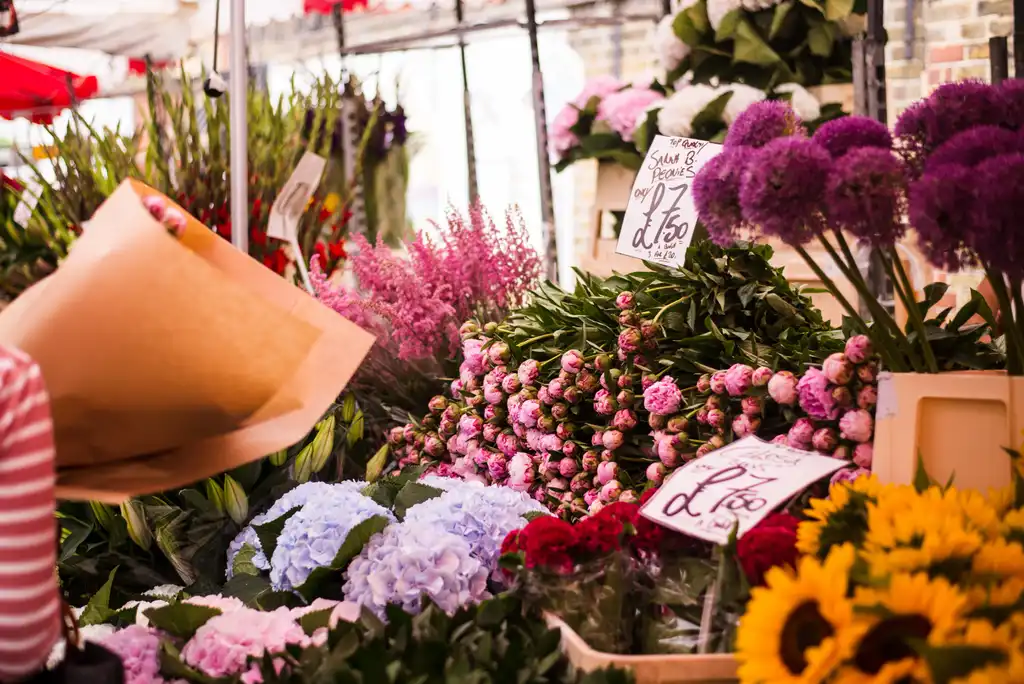Learning to live alone. What I learned moving to a new country, a new city, and a new life.
“I wandered lonely as a cloud
That floats on high o’er vales and hills,
When all at once I saw a crowd,
A host, of golden daffodils;
Beside the lake, beneath the trees,
Fluttering and dancing in the breeze …”
-William Wordsworth
Despite my assumptions and expectations, living alone in London was one of the most difficult periods in my life. Starting September 2018, I had the privilege of attending the London School of Economics for a one-year graduate program. Before moving, I had many preconceptions of how my life would be with little to no anticipation of discomfort. I believed it wouldn't be too difficult to adjust to my environment, make new friends, and understand concepts taught in school based on the experience of friends that graduated from LSE.
One vital thing I overlooked was the prolonged silence at the end of the day. I realized my room was a jail cell, and I was my own prison guard. Eventually, I broke free and learned some things along the way. I am now equipped with a versatile set of skills that have prepared me for virtually any situation.
Ultimately, I adjusted, made friends, and created a study routine. As with most trying periods in our lives, I learned a great deal about myself and the world.

Here are some things I learned during my journey:
1. Building a new support system is uncomfortable, but you learn to talk to anyone anywhere.
Meeting people from all walks of life, whether the panda capital of China or ‘La Ville Lumière’, helped me learn the types of questions to ask various people. Once I became a better conversationalist, I was able to ask interesting questions in personal and work settings.
2. While it can seem sad to be alone, it gives you a chance to notice the world around you.
One of my fondest memories of living abroad was walking around Waterloo and the markets. I loved seeing the streets full of bouquets, succulents, plants, and food stalls. My father always says if I’m ever feeling a sense of loneliness or feeling down, then I should go and buy myself flowers - they will lighten up my mood. His words rang true.
Not only did I buy myself succulents and hydrangeas on my walks around London, I also came across the best takeaway restaurants and compassionate people. I found my favorite affordable takeaway restaurant - I mean who can beat Shaheen’s £4 chicken biryani. My weekly routine started to incorporate takeout from Shaheen’s and a comforting chat with the sweet shopkeeper, reminiscent of my dadi (grandma).

3. Overcoming your past can seem like climbing Mount Everest, but it can be done and the view from the top is worthwhile.
We are our pasts. We carry them around with us. Our past experiences are the lenses we look at the world through. It takes time to understand and move beyond those experiences, but once we do, the world looks different. We still have the wisdom and memories, but we’re able to accept each new experience on its own merits without the stains and preconceptions our history gives them.
4. Being indulgent is only scary as long as you care what others think.
Once I started to get comfortable, I began to realize my happiness outweighed others’ perceptions of me. During stressful periods of grad school, I would sometimes order an entire pizza and tiramisu for myself. I have no regrets 😉.
While I learned many things abroad, during the pandemic I started to reflect on my story. The social scientist in me became interested in learning about various experiences in my life as well as others’ stories. I wanted to analyze a range of topics in society, explain why they occur, and address the societal ramifications. I started by exploring living alone. Questions I asked were: How many other adults live alone? What are the trends in living alone? Are singletons happy? Are there a lot of us? If so, how are they affecting society and policy?
Let’s Talk Social Science:
As far as statistics relating to my journey to live alone go, data from the Census Bureau’s Current Population Survey (CPS) shows that the share of adults who live alone has nearly doubled in the last 50 years. In the latest 2019 data release, more than a quarter of US households are one-person households. Internationally, the share varies by region and age; among the youngest adults, ages 25-29, the number who live alone in the 113 nations ranges from 0 to 32 percent (zero doesn’t mean that no one lives alone, but that rounding to the nearest whole number gives you an answer of zero percent). The place with most people living alone in this age range is Germany. There and in Switzerland, nearly 1 of every 3 adults between 25 and 29 lives alone. The irony of living alone is that I wasn’t the only one - quite a lot of people are transitioning into settling down as singletons.
In the chart below, you can see that two-person households have been the most common over the span of 60 years. Additionally, in 1971 one-person households overtook three-person households as the second most common.
Source: Current Population Survey
There are many factors contributing to the number of people, particularly women, who live alone:
- Migration from rural to urban areas
- Better economic opportunities
- Higher wages
- A need for independence
- More women in the labor force
- Delayed marriages and children later
- More single-parent households
- More older adults living alone
There’s much less stigma to living alone than there used to be. You’re no longer seen as strange or outcast.
Collectively, there are far-reaching social, economic, and political consequences that can transform society. First, there may be changes in housing construction and homeownership - there could be increased demand for smaller homes and apartments. Second, living alone may influence consumer behavior, such as the use of meal products, effects on savings, changes in healthcare, increase in leisure activities, and the necessity of elder assistance services, which may impact business offerings and public policy. Finally, there may be political changes as people will vote differently than they would if they were in more traditional family units.
Individually, one can find tremendous growth living alone, if affordable.
As I see more people move for school or jobs, alone, I’d like to remind you: Your journey might be difficult, but it will be invaluable. And if you feel isolated or lonely, then pick up some flowers for yourself, maybe you will make cherished memories along the way. I wish you Godspeed!
References
Current Population Survey Households by Size: 1960 to Present. (2020, December). Census.gov.
